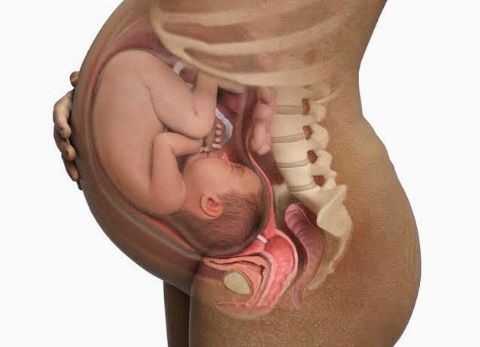Nutrition experts say iodine deficiency during pregnancy could have a devastating impact on babies in the womb and also delay their growth after they are born.
According to the experts, it is important for pregnant women to avoid having iodine deficiency as it can cause sluggishness, deafness and impaired neurological conditions in children.
Also, according to the World Health Organisation, severe iodine deficiency in pregnancy can lead to maternal and foetal hypothyroidism.
WHO said, “As adequate thyroid hormone is required for normal foetal development, iodine deficiency in pregnancy is associated with congenital anomalies, decreased intelligence, and cretinism, as well as maternal and foetal goitre”.
The global health agency also noted that large-scale iodisation programmes have not been implemented in many settings, adding that despite major progress over the last four decades, it is still estimated that nearly two billion individuals worldwide remain at risk for iodine deficiency disorders.
Pregnant women in many countries, WHO said, are not receiving adequate iodine
Speaking with PUNCH HealthWise, President of the Nutrition Society of Nigeria, Prof. WasiuAfolabi, says iodine deficiency in pregnancy should be promptly addressed, noting that it could cause abnormal growth of babies as well as stillbirth.
Afolabi, a Professor of Community Nutrition at the Department of Nutrition and Dietetics, Federal University of Agriculture, Abeokuta, Ogun State, noted that iodine is required for the normal development and function of the brain and nervous system.
He stated that the lack of Iodine in pregnancy is a common cause of infant and child mortality.
The nutritionist said, “Iodine is required for normal development of the foetus inside a pregnant woman.
“So, when it is not sufficient, that means the child in the womb may not grow adequately. In fact, iodine deficiency can cause loss of pregnancy and it can cause stillbirth.
“It is very important that a pregnant woman has enough iodine. Interestingly, the requirement for iodine for a pregnant woman is higher than for a woman who is not pregnant.
“When women are pregnant, they run the risk of having insufficient iodine, particularly when they have inadequate intake.”
Prof. Afolabi reiterated that iodine deficiency during pregnancy can also cause slower growth in a child.
Reeling other consequences of iodine deficiency in pregnancy, the NSN president said, “The child can be delivered with mental retardation.
“The child will be slow to grow. That is why, some children, when they are delivered, will appear normal.
“But as time goes on, you will find out that they are very slow to grow. They will be slow to reach developmental milestones like walking and teething. Everything about them will be slow.
“Such children may likely be sluggish and their growth will be retarded.”
He urged women of reproductive age to consume a variety of foods, fruits and vegetables rich in iodine.
According to him, seaweeds and seafoods are rich sources of iodine.
In a 2021 study published by ScienceDaily, researchers from the University of South Australia confirmed that there is a link between poor iodine status in women and impaired neurological conditions in newborns.
According to them, poor iodine levels in women pose risks to foetal intellectual development in pregnancy.
The lead researcher and dietitian, Jane Whitbread, says adequate iodine is essential for foetal intellectual development.
“Mild to moderate iodine deficiency has been shown to affect language development, memory and mental processing speeds.
“During pregnancy, the need for iodine is increased and a 150mcg supplement is recommended prior to conception and throughout pregnancy.
“Unfortunately, most women do not take iodine supplements before conceiving. It is important to consume adequate iodine, especially during the reproductive years”, Whitbread said.







Muchas gracias. ?Como puedo iniciar sesion?